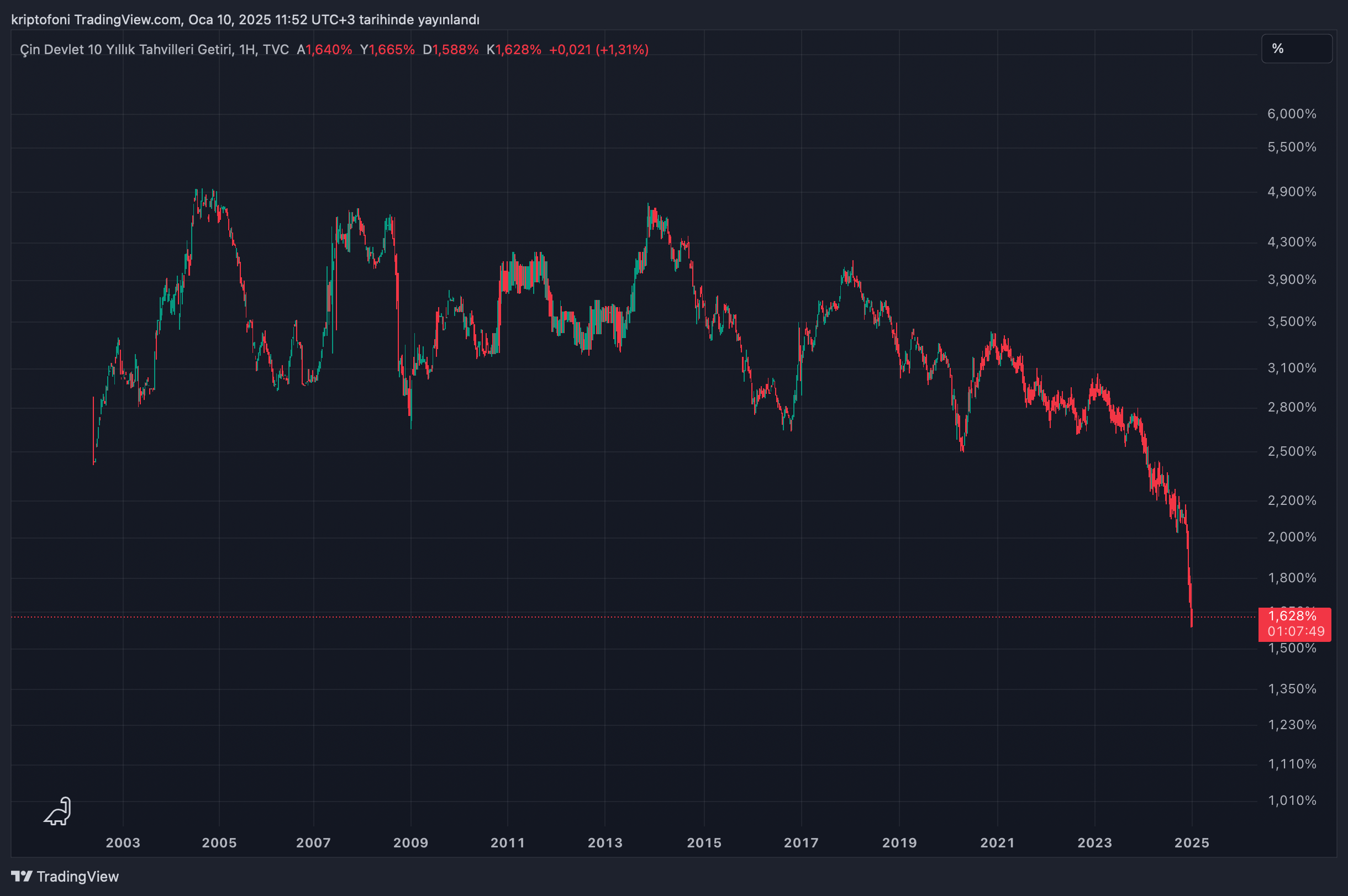The People’s Bank of China (PBOC) recently made a significant decision to support the depreciating Chinese yuan. The bank announced that it would halt government bond purchases this month. This decision was made in response to the demand for bonds exceeding their supply.
Declining Bond Yields Challenge the Chinese Yuan
Experts note that this decision reflects concerns regarding falling bond yields and their impact on the Chinese yuan. The yield on China’s 10-year government bonds dropped below 1.6% at the beginning of this week. According to TradingView data, this threshold corresponds to a 100 basis point decline over the past 12 months.

In contrast, the yield on U.S. 10-year bonds rose to 4.7%, marking the highest level since November 2023. This has widened the gap between U.S. and Chinese bond yields, bolstering the U.S. dollar.
The Chinese yuan continues to decline against the U.S. dollar, slipping to 7.32. This drop signals the lowest performance in three months. Analysts indicate that developments in the Chinese bond market, as well as trade tariff concerns linked to the incoming administration of Donald Trump, increase pressure on the yuan.
Weakening Yuan Could Spark Growth in Cryptocurrency Markets
Analysts believe that a weakening yuan may accelerate capital outflows. Part of these outflows is expected to flow into the cryptocurrency market. This could especially boost demand for leading cryptocurrencies like Bitcoin (BTC)  $91,967, supporting the upward trend in the crypto market.
$91,967, supporting the upward trend in the crypto market.
As China navigates this transitional period, economic risks continue to exert pressure on the yuan. The decline in bond yields and the widening spread between U.S. and Chinese bonds may drive investors toward the U.S. dollar and cryptocurrencies. Furthermore, the depreciation of the yuan could influence China’s role in global markets.









